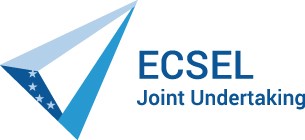ANaConDA Framework
About
ANaConDA is a framework that simplifies the creation of dynamic analysers for
analysing multi-threaded C/C++ programs on the binary level. The framework
provides a monitoring layer offering notification about important events, such
as thread synchronisation or memory accesses, so that developers of dynamic
analysers can focus solely on writing the analysis code. In addition, the
framework also supports noise injection techniques to increase the number of
interleavings witnessed in testing runs and hence to increase chances to find
concurrency-related errors.
Download
Linux (x86 32-bit/64-bit)
Latest Release
ANaConDA suite latest beta (Sources) (includes framework, libdie and libdie-wrapper libraries, analysers, and tools)
Special Releases
ANaConDA suite 0.4 for AQUAS (Sources) (includes framework, libdie and libdie-wrapper libraries, analysers, and tools)
-
Supports caching of memory access instruction locations.
-
Contains the Eraser and FastTrack data race detectors.
Older Releases
ANaConDA suite 0.2 beta (Sources) (includes framework, libdie and libdie-wrapper libraries, analysers, and tools)
ANaConDA framework 0.1 beta (Sources) (compilation requires libdie and pinlib-die libraries)
Windows (x86 32-bit/64-bit)
Latest Release
ANaConDA suite latest beta (Sources) (includes framework, libdie and libdie-wrapper libraries, analysers, and tools)
Special Releases
ANaConDA suite 0.4 for AQUAS (Sources) (includes framework, libdie and libdie-wrapper libraries, analysers, and tools)
-
Supports caching of memory access instruction locations.
-
Contains the Eraser and FastTrack data race detectors.
Older Releases
ANaConDA suite 0.2 beta (Sources) (includes framework, libdie and libdie-wrapper libraries, analysers, and tools)
ANaConDA framework 0.1 beta (Windows 64-bit)
Usage
Running ANaConDA
Linux
To run ANaConDA on Linux, do the following (source release only):
-
Run tools/build.sh --setup-runtime
This will check if the tools needed to run ANaConDA are available and if not, it will download and install them.
-
Run tools/build.sh all
This will build the ANaConDA framework with all of its libraries and all analysers.
-
Run tools/run.sh <analyser> <program>
This will start the analysis of a given program.
Windows
To run ANaConDA on Windows, do the following (binary release only):
-
Run tools/cygwin.bat --quiet
This will start a Cygwin terminal where the scripts for running ANaConDA can be
executed. If Cygwin is not found, the script will download it and install it
(with all the required packages). If you want to choose where to download and
install Cygwin, start the script without --quiet option.
-
Run tools/build.sh --setup-runtime (in the started Cygwin terminal)
This will check if the tools needed to run ANaConDA are available and if not, it
will download and install them.
-
Run tools/run.sh <analyser> <program> (in the started Cygwin terminal)
This will start the analysis of a given program.
Analysing a Program
To perform an analysis of a given program, run the following command:
-
tools/run.sh <analyser> <program> [<program-parameters>]
where
-
<analyser> is a name of the analyser to be used to perform the analysis, and
-
<program> is a name of the program to be analysed or path to its executable
The names of analysers can be found in the Repository Layout section under the
analysers node (the trailing slash (/) is not part of their name) with a brief
description of what the analyser does.
Instead of a path to a program executable, one may register a program under an
alias and then use this alias to specify the program to be analysed instead of
the path to it. See section Registering a Program for more information.
For example, printing the information about the operations (accesses to memory,
lock acquisitions, ...) performed by the 'ls' command with the '-la' parameter
can be done using the following command:
-
tools/run.sh event-printer /usr/bin/ls -la
If you have further questions, do not hesitate to contact author
( Jan Fiedor ).
Related Papers
[1]
[2]
[3]
Jan Fiedor,
Vendula Hruba,
Bohuslav Krena,
Zdenek Letko,
Shmuel Ur, and
Tomas Vojnar.
Advances in Noise-based Testing of Concurrent Software.
In
Software Testing, Verification and Reliability—STVR,
Volume 25 Issue 3, pages 272–309, 2015, John Wiley and Sons Ltd.
[4]
[5]
Ricardo J. Dias,
Carla Ferreira,
Jan Fiedor,
Joao M. Lourenco,
Ales Smrcka,
Diogo G. Sousa, and
Tomas Vojnar.
Verifying Concurrent Programs Using Contracts.
In
Proc. of 10th IEEE International Conference on Software Testing, Verification and Validation—ICST'17,
Tokyo, Japan, pages 196–206, 2017. IEEE.
Acknowledgement
This work was supported by the Czech Science Foundation (project P103/10/0306),
the Czech Ministry of Education (projects COST OC10009 and MSM 0021630528), the
EU/Czech IT4Innovations Centre of Excellence project CZ.1.05/1.1.00/02.0070, the
internal Brno University of Technology projects FIT-S-11-1 and FIT-S-12-1, and
the Artemis JU project 7H13004 HoliDes.
Development of this tool has been supported by AQUAS project (Aggregated Quality
Assurance for Systems,
https://aquas-project.eu/). This project
has received funding from the Electronic Component Systems for European
Leadership Joint Undertaking under grant agreement No 737475. This Joint
Undertaking receives support from the European Union's Horizon 2020 research and
innovation programme and Spain, France, United Kingdom, Austria, Italy, Czech
Republic, Germany.
This tool as well as the information provided on this web page reflects only the
author's view and ECSEL JU is not responsible for any use that may be made of
the information it contains.



